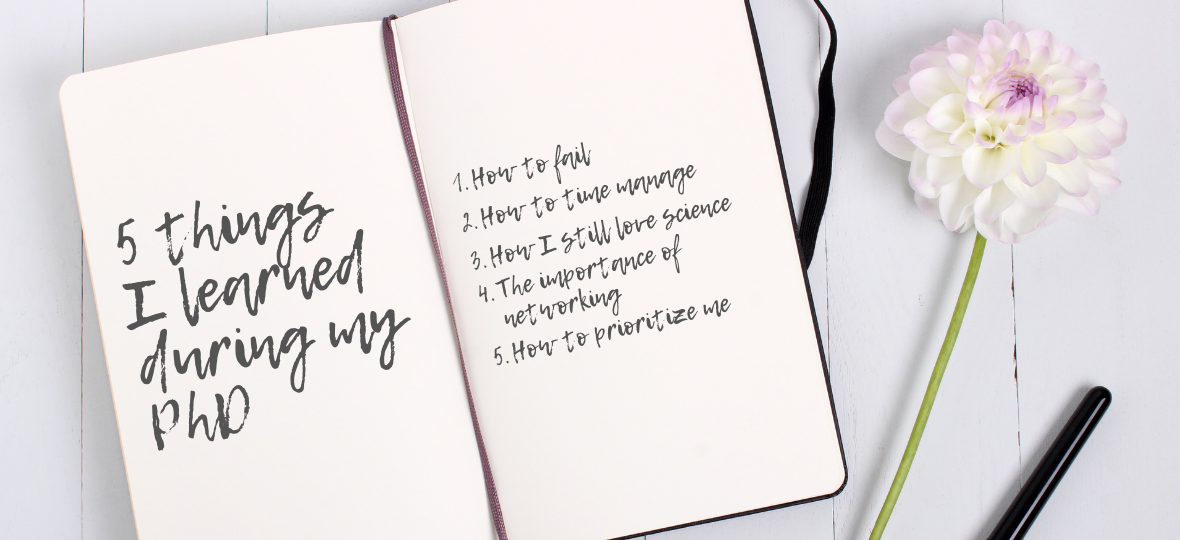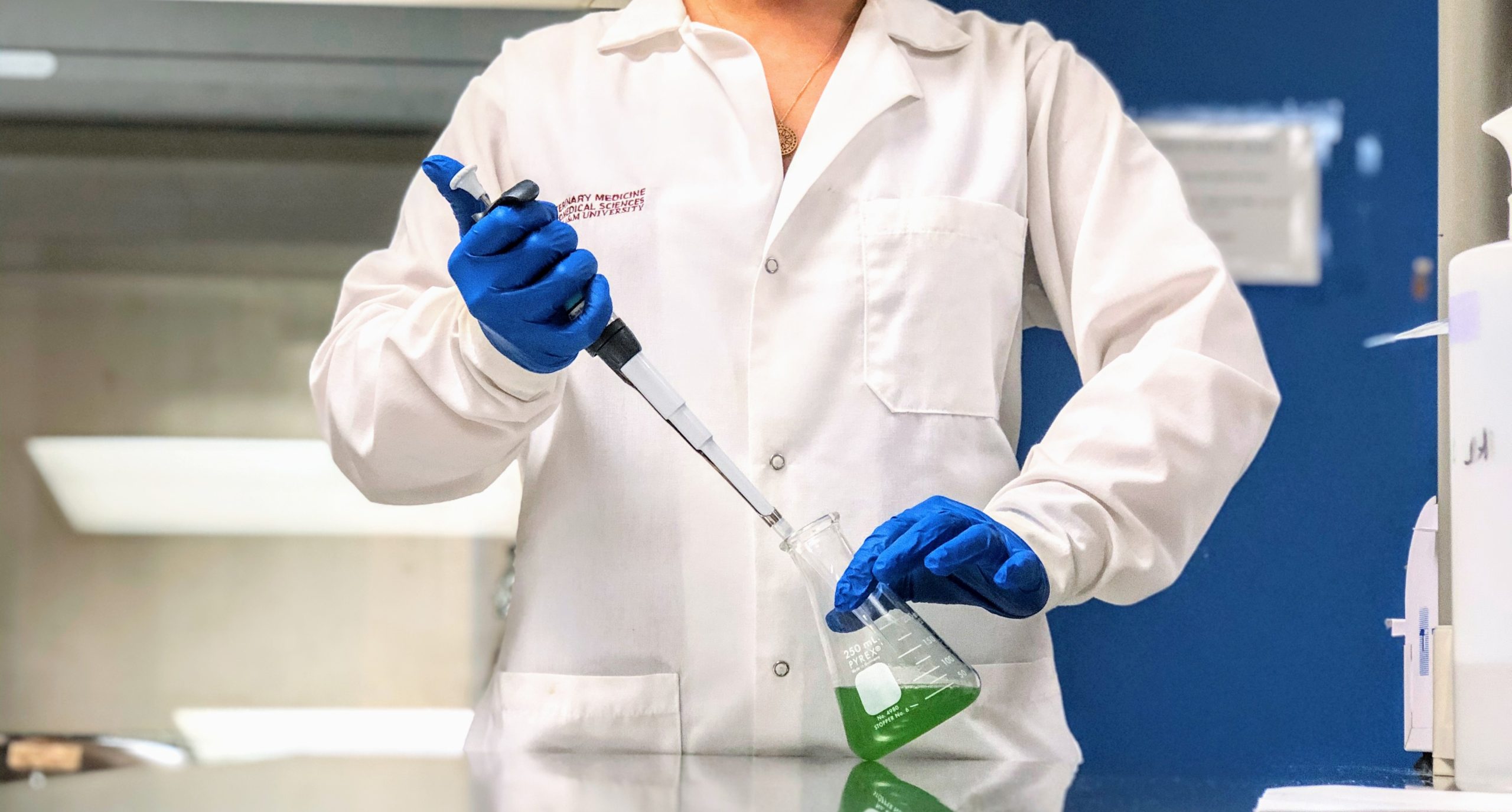In grad school I obviously spent a lot of time learning about my topic and research, but there were also a lot of things I learned outside of my research that were far more important than my niche project. Whether you are a new graduate student or about to graduate, I think it’s important to remember that the ultimate goal of higher education isn’t to have the best project, but instead to learn how to problem solve and develop your skills as a scientist (or for whichever field you’re in). I will just highlight 5 main lessons that I took away from my PhD journey.
1. How to fail
Perhaps one of the most important lessons I learned in grad school was how to fail – and I failed a lot.
At one point during my PhD, I spent the better part of a year troubleshooting a cell culture assay with no clue what I was doing wrong. The literature told me I was doing everything right, and so did my mentors and colleagues. Just nothing I did seemed to work. And you can bet that I questioned myself as a scientist over and over again.
Not only did I fail in the lab, but I failed at other things too. I wrote multiple grants and fellowship applications that were rejected. I also failed in parts of my relationships, too. Grad school is a TON of work (don’t let people make you think different), and sometimes I failed to put the time into personal relationships. These failures caused me to look at my priorities and goals, but they also made me reflect on who I really was as a person outside of my degree.
You hear all these cliché sayings like, “we learn from failure and not success,” but it is true that failure isn’t fatal. Learning to fail during my PhD was crucial to me getting my degree. At first it stings, and you question your ability. But, eventually you realize that it is not a reflection of your ability, but just a set of stairs you still have to climb to find the right answer.
2. How to time manage
Time management doesn’t just mean having enough time to do schoolwork. Time management also means learning how to balance your personal life and work life.
Grad school is not just attending classes. Often it is a combination of taking classes, teaching classes, running laboratory experiments, data analysis, and writing. It’s stressful, it’s a lot of work, and it’s exhausting. Learning not only to manage your time between all of these to-dos, but also to do so in a healthy way is something that definitely isn’t taught in grad school, but still something that is a must to learn. It is easy to shut yourself away and work while not allowing time for social activities or relaxation. But this is a surefire way to reach a burnout stage.
Something they don’t tell you about grad students is that we are adults! Many higher education students are in their 20s and 30s with significant others, families, and other responsibilities than just their degree. This is a fact I wish more advisors and programs understood. Learning to time manage, and not feel guilty about it, is the only way to survive grad school. Because trust me, there will always be more work to do.
3. How, despite the struggles of graduate school, I still love science
My relationship with science changed in grad school. I had always loved it, but I developed more of an appreciation for it during my degree.
I know you’re thinking, what does that even mean? Haha. When I entered graduate school, I knew I wanted to go into science because it was interesting to me. I began by loving my PhD project and having this dream in the back of my head that my dissertation project may change the world. In retrospect, a good dissertation is a done dissertation, but I digress…There were times I thought I hated science because of my failures or inability to get more done, but it really was me just learning more about science.
As I went through my struggles in my degree and in my project, I learned to love science for reasons other than it was interesting. I learned that a key concept in science is integrity. By how diligent I was about properly executing my experiments, the better my science was. I’m sad to say that there are scientists out there willing to make shortcuts to get the answer they want from a study. But I learned that what made me a good scientist was not something others saw, but how I conducted myself (this is a life lesson too FYI).
Something else I learned was how important it is to share science. If you’ve checked out this site at all, you know I am interested in science communication. But, it wasn’t until my PhD that I understood its importance. Science is not something that can be done alone. It takes many people to offer their unique ideas, to synthesize and analyze data, and then to share and translate it. Something severely lacking in all STEM fields is the ability to share technical work in digestible ways. So during my degree I not only learned to conduct science, but to share it understandably, and to see how big an impact that has.
4. The importance of networking
If you don’t know already, a HUGE part of progressing in any career is networking.
I was fortunate to attend numerous conferences during my PhD. Not only did this give me the opportunity to work on presenting and communicating my data (see #3), but it also opened doors to connect with other talented people. A big piece of advice I would give to anybody entering graduate school is to network as much as you can. I found and got my current job in large part due to meeting people at the company during my conference attendance.
And not only is networking important for finding jobs, but it is also important for finding mentors. Maybe you are lacking support from your advisor/committee, or maybe you just don’t know someone with the exact expertise you need to answer a specific question, but actively networking within your field can help immensely with these shortfalls.
And just a final note – if it’s nerves or anxiety holding you back from reaching out to someone new, just remember we’re all human. What’s the worst someone could do? Say no?
5. How to prioritize me
I think you can look back at any stage in your life and see you’ve learned a lot about yourself and who you are. But going through something as challenging as a graduate degree forces you to be very introspective at times and to take the time to work on yourself.
I, as do many other graduate students, struggled with mental health issues while completing my degree. Throughout my schooling, I sought help in the form of therapy, which I will forever be thankful for. In therapy, I had to focus on many of the fallacies we tell ourselves, like not being good enough to be in grad school. As I worked through personal and school related struggles, I slowly got better at tackling everyday stresses as well as learning how I best respond to hard times. This helped me in both my PhD work, but also in my personal relationships and is something I will take with me out of my degree.
I truly cannot stress how important it is to take care of your mental health during graduate school. At the end of the day, you’re the only one living in your head, so make sure it’s a good place to be!
Summary
In summary, there are so many lessons to learn in grad school that have nothing to do with your degree. At the end of the day, life goes on while you’re in graduate school. Pursuing a higher degree is hard and not an easy decision to make, but for me I think it taught me a lot about myself and my abilities.





Leave a Comment